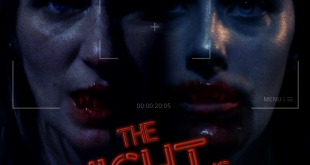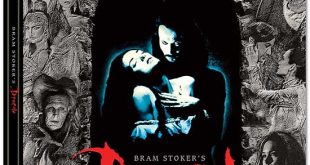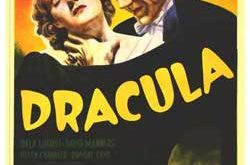Book Author: Bekka Black
Publisher: SourceBooks Fire, 2010
150 pages, $9.99
The story of Dracula isn’t new. It isn’t even kind of new. There have been dozens of film, literary, graphic novel, and even musical adaptations and interpretations of the story. Dracula has been to the past, he has been brought forward into present day, he has been to space, he has been a tragic anti-hero, he has been a blood-sucking maniac, he has been a sex object and a horror icon and he has inspired everything from animated cereal spokesmen to children’s show puppets. Even Van Helsing and Mina Murray have gotten their own spin-offs in movies, comic books, and action figures. So there wasn’t exactly an urgent necessity for anyone to go out and write yet another version of the Dracula story. At this point it is a ubiquitous cultural reference that everyone from toddlers to the elderly will recognize.
But Bekka Black did go out and write Dracula yet again. She included most of the original cast of characters from Renfield the crazy minion to Lucy the slutty best friend to Van Helsing the scientist/vampire hunter. The story follows the original route from Transylvania to America; Jonathon Harker still gets served as dinner, Mina Murray still manages to just barely foil Dracula’s plan to make her a blood-sucking bride, and the immortal prince of darkness meets his unfortunate end at the close of the story. There aren’t a whole lot of surprises in store for readers here who have a basic knowledge of the original story.
That does not, however, mean that iDrakula isn’t worth reading. Because it may follow the original plot of the original vampire novel, but the author has taken that plot and made it topical for here and now. The entire story is told through text messages, emails, website searches, and online content. Mina and Jonathon are umbilically connected through their iPhones and notebook computers, so when bad things start to happen everyone is instantly aware. In fact they are hyperaware, and ready to research and diagnose every problem that arrises. These characters might share names and basic features with their original counterparts, but they are much more world savvy then the old school Mina and Jonathon ever were.
The author doesn’t just stop there with Mina’s transformation, either. Bram Stoker’s Mina was bright, humorous, and just a few steps away from being liberated. She had the potential to be a strong, independent woman, as evidenced by her strength in several of the darker scenes of the original story. Bekka Black’s Mina has taken all of the original’s potential and turned it into a strong, free-spirited, fiercely proud, and truly confident young heroine. She is on top of her game from beginning to end. When her boyfriend goes missing she does all she can to find him. When her friend goes insane she makes sure he knows he is still cared about. When it turns out her best friend and boyfriend have been sleeping together, she drops that boyfriend like a hot pile of dog poo. And when she starts to think a vampire is the cause of all of her current uncertainty and misery, she goes out and finds that vampire and lets him know who is boss.
This is a thoroughly modern Dracula story, with a thoroughly modern heroine, that its intended young adult audience will be able to relate too and root for. And even someone my age, who is (though it kills me to admit it) long past my young adult days, can root for this re-telling of a classic story. In part because I prefer Mina Murray in all her snarky and independent glory to other current teen heroines who seem to depend too much on the love of their sparkly, emo, vampire boyfriends who feel it is their place to tell everyone what to do (cough cough Twilight cough cough). And in part because this modernization of the Dracula tale was done well. It was fun to see it play out through Smartphones and search engines. It made the plot move along quickly and it resonated with life today. I can’t see it being considered a classic in 10 years because technology will have moved on and the texting and emailing won’t be as relatable, but for now it works.
 Horror News | HNN Official Site | Horror Movies,Trailers, Reviews
Horror News | HNN Official Site | Horror Movies,Trailers, Reviews






